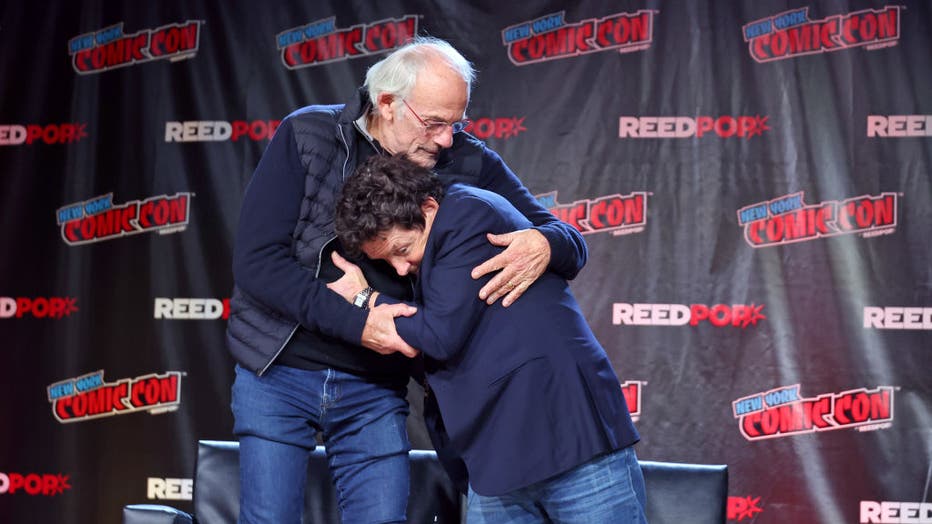Austin neurologist speaks on how actor Michael J. Fox has helped Parkinson's community

Local neurologist speaks on how Michael J. Fox has helped Parkinson's community
Michael J. Fox made an appearance at Comic-Con last weekend, and brought renewed attention to Parkinson's disease, which he's lived with for three-decades now
AUSTIN, Texas - Michael J. Fox made an appearance at Comic-Con in New York last weekend, bringing renewed attention to Parkinson's Disease. Fox has lived with Parkinson's for three decades now.
"You have to understand, Michael J. Fox has had Parkinson's since age 29, which is a bit atypical. You usually get this later in age, usually past 65 or older," said Dr. Eric Krause, a neurologist with Ascension Medical Group — Seton Neurology.
Dr. Krause said with Fox being diagnosed so young, it makes his case so unusual. At 61 years old, he has now been living with the neurodegenerative disorder for more than 30 years.
"No Parkinson's patient is the same. And, so people that have Parkinson's, they usually live over 20 years. That's not too uncommon these days because we have good medicines to treat them and even surgical procedures to help them live a good quality of life," said Dr. Krause.

NEW YORK, NEW YORK - OCTOBER 08: Actors Christopher Lloyd (L) and Michael J. Fox attend a "Back To The Future Reunion" at New York Comic Con on October 08, 2022 in New York City. (Photo by Mike Coppola/Getty Images)
READ MORE
- Michael J. Fox says he doesn’t feel sorry for himself because of Parkinson’s disease: 'No regrets'
- Michael J. Fox says 'I'm not going to be 80' amid ongoing battle with Parkinson’s disease
- Watch: Michael J. Fox, Christopher Lloyd share emotional reunion at ‘Back to the Future’ panel
Typically, Parkinson's patients develop abnormal, uncontrollable movements after about five to seven years. That is something that can be seen when Fox took the stage with his "Back to the Future" co-star Christopher Lloyd at Comic-Con.
"So, those excessive movements are called dyskinesia. And, dyskinesia can happen later in the course of Parkinson's, when you've been exposed to medicines for so long, you've built tolerance to the medicines," said Dr. Krause.
Fox remains positive and is a source of inspiration and hope for people living with Parkinson's.
"He's actually done so much good for the Parkinson's community itself with the Michael J. Fox Foundation. I mean he's contributed to so many studies. He's probably been one of the best people for the Parkinson's research community in the world actually," Dr. Krause said.

Michael J. Fox on red carpet for SXSW 2023
FOX 7 Austin's Casey Claiborne talks about the new Apple TV+ documentary film "STILL: A Michael J. Fox Movie" and his interview with actor Michael J. Fox.
MORE HEALTHBEAT
- More young people suffering from early onset hearing loss, expert says
- Austin cardiologist speaks on extreme heat impact on heart health
- Bastrop man uses robotic device to relearn how to walk after stroke
"His work toward the field is just extraordinary. I think we all have to remember that and acknowledge that because he's not only a movie actor and a hero on the screen. He's actually a hero for the scientific community," Dr. Krause added.
The future is bright for Parkinson's, Dr. Krause said. Thanks to research, it's quite positive there could be a cure in 5 to 10 years.
To learn more about research and resources for Parkinson's patients and families, click here.

